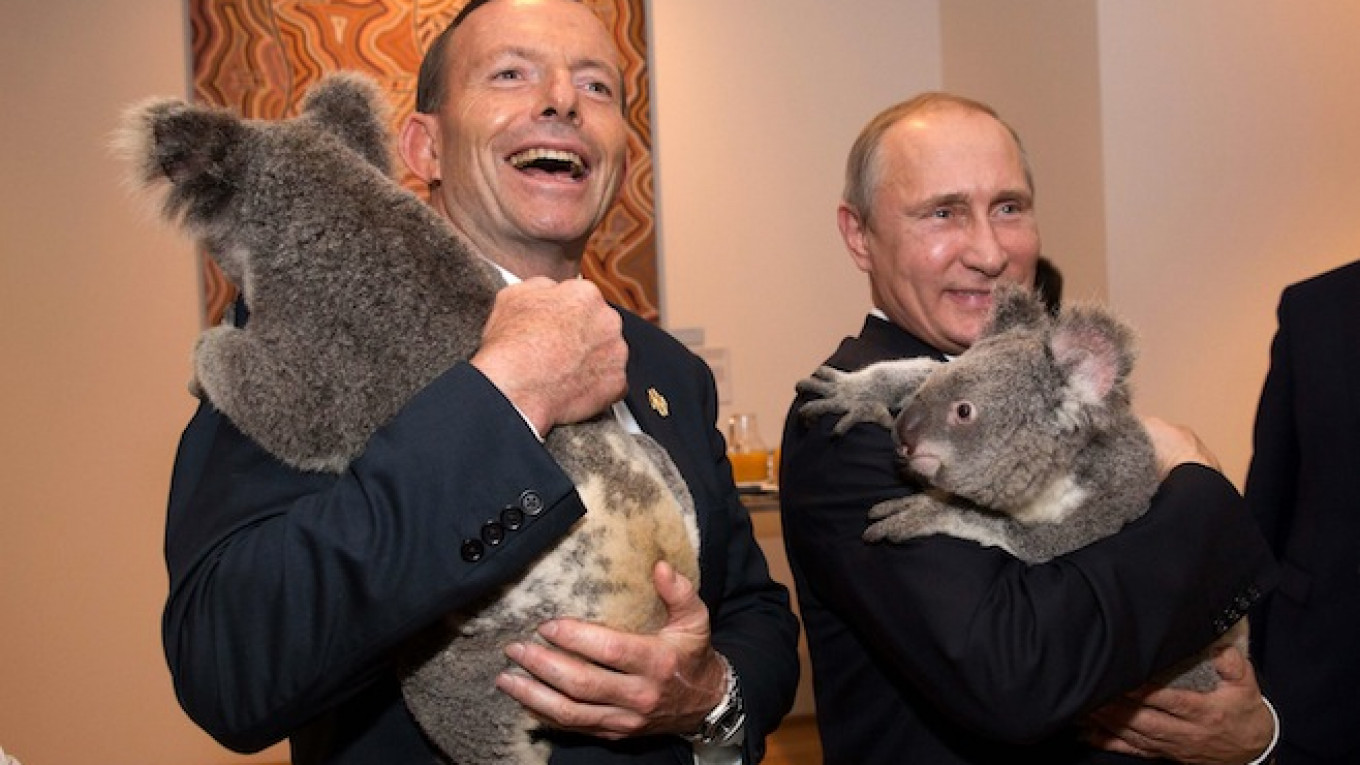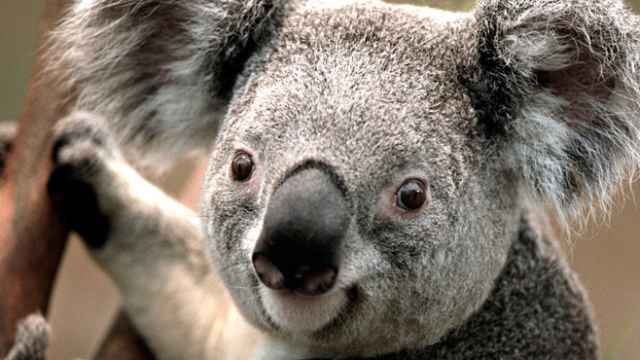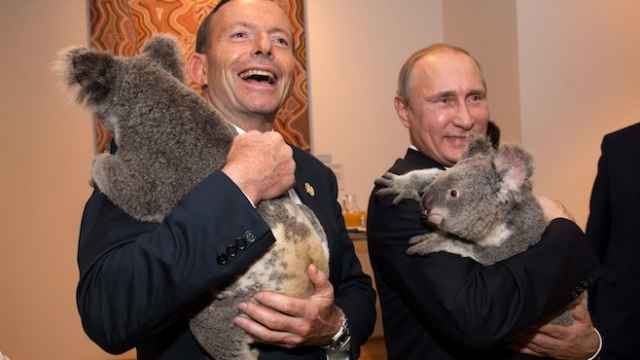The Russian Embassy in Australia has said in a sniping social media post that it hopes a koala famously hugged by President Vladimir Putin at a G20 summit was not covertly killed off by the authorities.
"Hope in the number of euthanized koalas did not get those animals that leaders at the G20 summit in Brisbane were photographed with," said the post published Wednesday on the embassy's Facebook page.
Australian regional authorities this week admitted that 686 koalas were culled in the state of Victoria in 2013 and 2014, the Australia news website reported.
Victoria authorities said they were euthanized because the number of koalas in the region had far exceeded the advised density of one koala per hectare to 11 per hectare, causing sickness and starvation among the marsupial population.
The embassy's bilingual post was accompanied by a three-way photograph of U.S. President Barack Obama, Italy's Prime Minister Matteo Renzi and Putin, all happily holding a koala at the G20 summit in Brisbane late last year.
The photos of world leaders holding the cuddly marsupials captured one of the few moments of relaxation at a summit otherwise fraught with tensions caused by the increasingly icy relations between Putin and Western leaders over the Ukraine crisis.
The Russian Embassy's online quip was backed by some animal rights activists. Others pointed out a temporal discrepancy in the comment, given that the culling presumably took place before the Russian leader ever set foot on Aussie soil.
Koalas are native to Australia and have been a protected species since the 1930s.
A Message from The Moscow Times:
Dear readers,
We are facing unprecedented challenges. Russia's Prosecutor General's Office has designated The Moscow Times as an "undesirable" organization, criminalizing our work and putting our staff at risk of prosecution. This follows our earlier unjust labeling as a "foreign agent."
These actions are direct attempts to silence independent journalism in Russia. The authorities claim our work "discredits the decisions of the Russian leadership." We see things differently: we strive to provide accurate, unbiased reporting on Russia.
We, the journalists of The Moscow Times, refuse to be silenced. But to continue our work, we need your help.
Your support, no matter how small, makes a world of difference. If you can, please support us monthly starting from just $2. It's quick to set up, and every contribution makes a significant impact.
By supporting The Moscow Times, you're defending open, independent journalism in the face of repression. Thank you for standing with us.
Remind me later.






